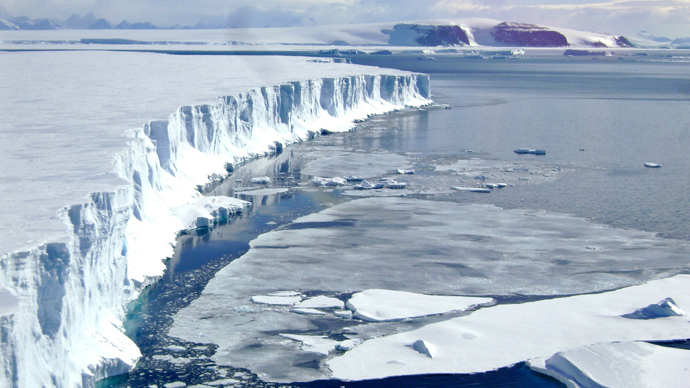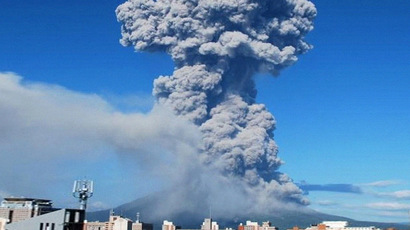Volcanоes active under Antarctica ice, may erupt - new study

Deep under the ice sheet covering Antarctica, volcanic fire still rages, a new study shows. The movement of magma, which may signal an upcoming eruption, was spotted by tell-tale signs of ‘tremor swarms’ in the west of the frigid continent.
Antarctica features a number of volcanoes elevating above its surface, the most active and well-known being Mound Erebus. Hence there have long been suspicions that some volcanic activity is occurring under the ice as well. This is indeed so, confirms a study published on Sunday last week in the journal Nature Geoscience, and it may have an effect on global climate change.
The authors of the paper studied the so-called Executive Committee Range, a series of volcanoes in Antarctica’s Marie Byrd Land, a desolate region in the west of the continent. They lie in more or less a straight line with volcanoes becoming progressively younger further to the south. The oldest in the chain, Whitney Peak, is estimated to be 13.2 to 12.7 million years old, while the youngest, Mount Waesche, formed about 1 million years ago.
Amanda Lough of Washington University in St Louis, Missouri, along with her colleagues, found that magma is still stirring under the Executive Committee Range thanks to seismic data gathered stations, installed on the ice between 2007 and 2010.
The station’s purpose is studying of the interaction between ice and the Earth’s crust. But among the data Lough found a series of unusual tremors, most of them occurring during two ‘seismic swarms’ in the first two months of 2010 and in March 2011.
The quakes were 25 to 40km deep, which meant they were not produced by the movement of ice. They also had a fairly low frequency, between 2 and 4 Hertz, suggesting they were not caused by an earthquake produced by tectonic plates grinding against each other.
Finally, the 1,370 tremors were centered on a point 55km south of Mount Waesche, the spot where volcanic activity should be now if the linear trend of Executive Committee Range continued.

While the exact nature of the quakes could not be identified for certain, they are consistent with magma movements recorded in volcanic areas of Alaska’s Aleutian Islands, the Pacific Northeast, Hawaii and Mt. Pinatubo in the Philippines, the study says. Those sometimes indicate an upcoming eruption.
Researchers cross-checked the seismic data with results of geomagnetic and radar mapping of the area. A slightly higher magnetic field suggested that there was a bump in the crust, a sign of magmatic activity under it. There are also indications of a layer of volcanic ash embedded in the ice, with its depth putting it about 8,000 years in the past. The team believes that the ash came from an eruption of Mount Waesche.
There is no sign that any eruptions occurred since then, and if they did, it would have to be a big one to melt the 1km thick ice sheet covering the location. But the head coming from a volcano could affect the movement of the ice by lubricating it. Scientists however are not sure how big an impact it would cause on the climate.














